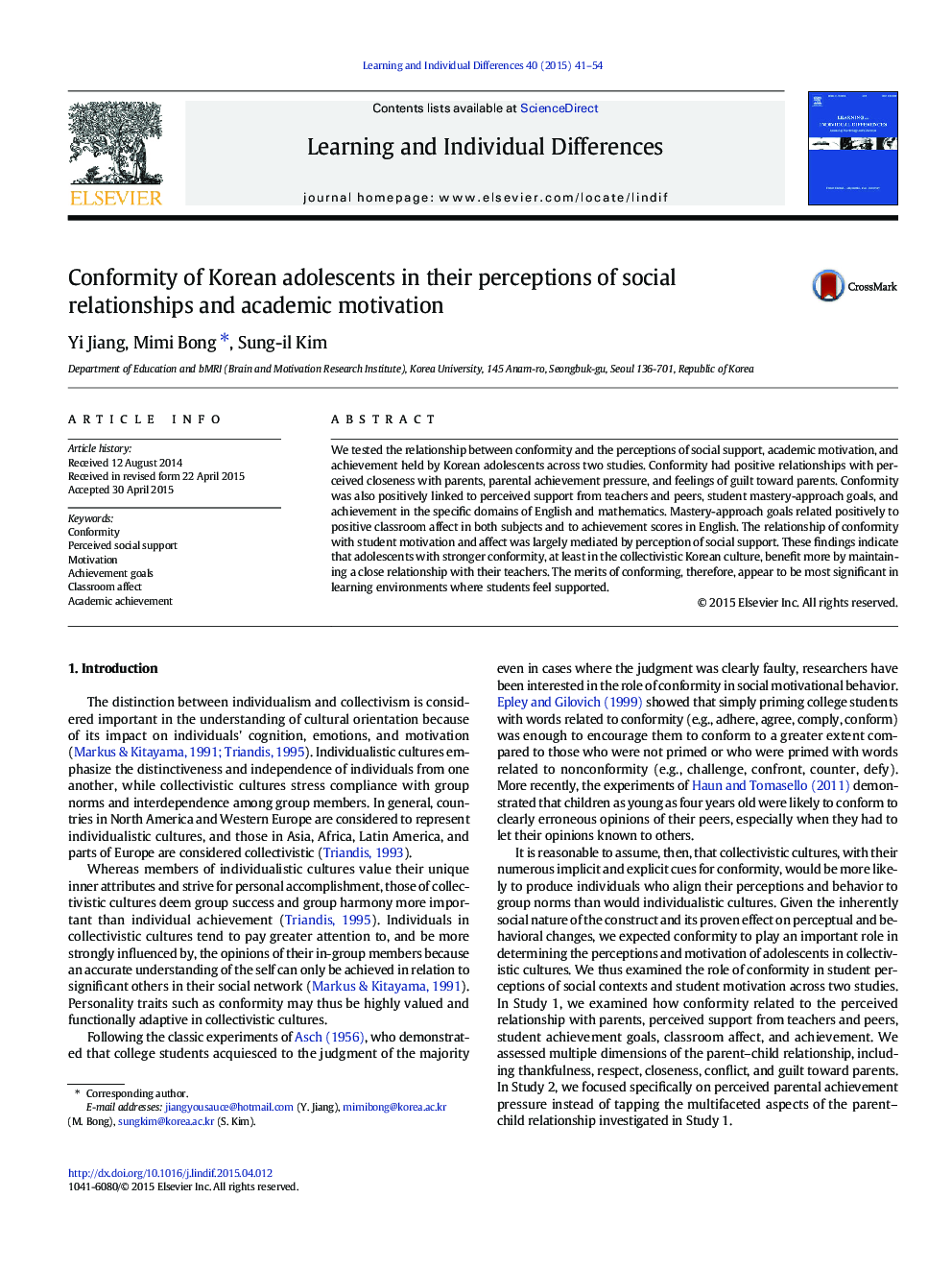| Article ID | Journal | Published Year | Pages | File Type |
|---|---|---|---|---|
| 364715 | Learning and Individual Differences | 2015 | 14 Pages |
•Conformity of Korean adolescents relates to their perceptions of social support.•Conformity relates positively to Korean adolescents' mastery goals and achievement.•Conformity relates to closeness to, guilt toward, and pressure from parents.•Perceptions of support mediate the relationship between conformity and motivation.
We tested the relationship between conformity and the perceptions of social support, academic motivation, and achievement held by Korean adolescents across two studies. Conformity had positive relationships with perceived closeness with parents, parental achievement pressure, and feelings of guilt toward parents. Conformity was also positively linked to perceived support from teachers and peers, student mastery-approach goals, and achievement in the specific domains of English and mathematics. Mastery-approach goals related positively to positive classroom affect in both subjects and to achievement scores in English. The relationship of conformity with student motivation and affect was largely mediated by perception of social support. These findings indicate that adolescents with stronger conformity, at least in the collectivistic Korean culture, benefit more by maintaining a close relationship with their teachers. The merits of conforming, therefore, appear to be most significant in learning environments where students feel supported.
